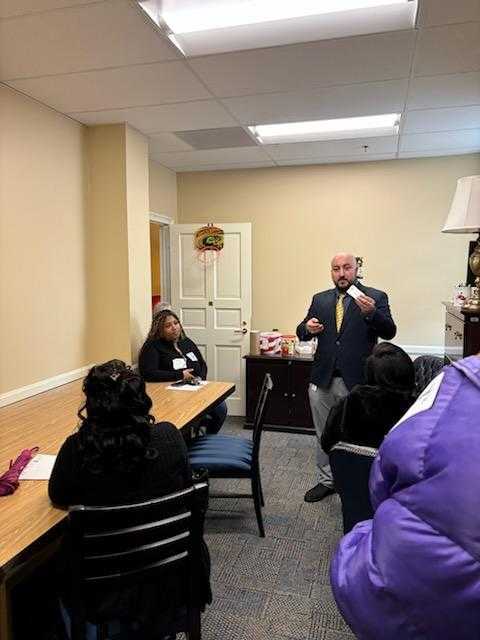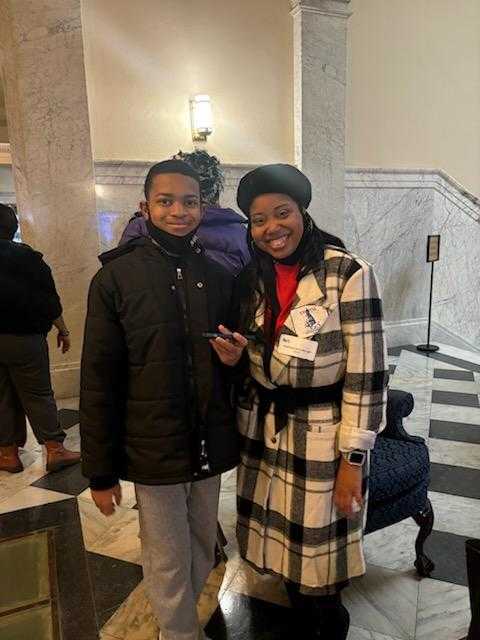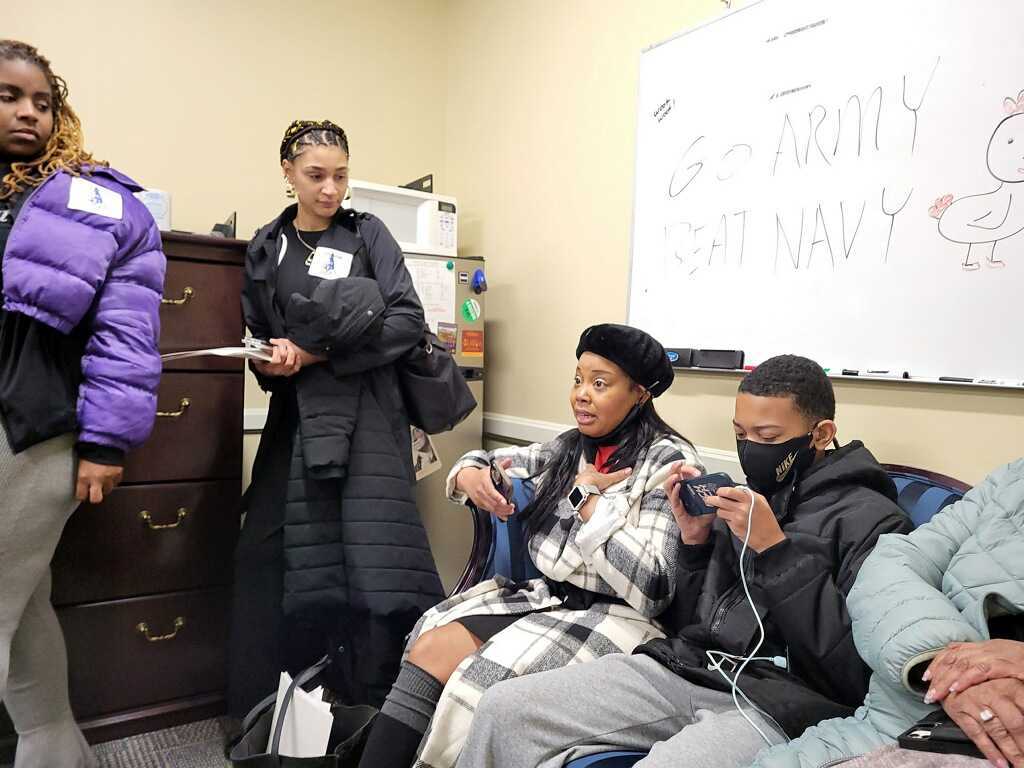The 2025 Maryland General Assembly session closed at midnight on Monday, April 7. While lawmakers grappled with important issues and the state’s looming $3 billion structural deficit, the legislature’s failure to enact any meaningful tenant protections stands out as a glaring and deeply disappointing omission.
Despite the passage of a few incremental measures, including legislation to extend funding for the Access to Counsel in Evictions Special Fund through fiscal year 2028 (though as introduced, the legislation would have made the fund and associated appropriation permanent), most of the bills prioritized by tenant advocates failed to cross the finish line.
The Senate Judicial Proceedings and House Environment and Transportation committees failed to act to move forward BRHP’s priority legislation, SB 677/HB 896 to protect housing assistance recipients from unfair and exclusionary tenant screening practices. Designed to prevent discriminatory tenant screening practices that disproportionately harm housing assistance recipients, this bill aimed to address a growing and well-documented issue: many landlords use overly broad and exclusionary criteria—like arbitrary credit score thresholds —to screen out tenants who rely on housing assistance. Despite support from housing advocates and impacted residents, the legislation never received a vote in either committee. This inaction means that thousands of Marylanders using housing choice vouchers and other housing assistance will continue to face arbitrary denials and discriminatory screening that has no bearing on their ability to cover their monthly rent—effectively locking them out of entire neighborhoods and perpetuating patterns of segregation and housing instability.
This wasn’t the only tenant protection bill to die in committee. Also failing to advance was the Good Cause Eviction bill (SB 651 / HB 709), which advocates have tried to pass in the General Assembly for over 15 years. This bill would have empowered local jurisdictions to require landlords to state legitimate reasons for terminating leases. Reports that the bill would only move out of the Judicial Proceedings Committee with a toxic preemption clause that would have required local jurisdictions to choose between enacting local rent stabilization measures and good cause eviction laws drew widespread opposition from tenants and advocates alike. Marylanders need protection from both skyrocketing rents and unjust evictions.
Similarly, the Maryland Fair Chance Housing Act (SB 514 / HB 1077), which would have prohibited housing discrimination based on criminal history, failed to progress. Despite its potential to expand access to stable housing and reduce recidivism, the bill never made it out of either the Judicial Proceedings or Environment and Transportation committees —leaving thousands of Marylanders vulnerable to persistent housing discrimination.
One of the few tenant protection bills that made progress this session, albeit in a heavily amended form that eliminated one of the central components of the legislation, was the Tenant Possessions Recovery Act (SB 442 / HB 767), legislation designed to establish a notice period before repossession of the unit in an eviction and provide a 10-day window for tenants to reclaim their personal possessions. Unfortunately, the Senate Judicial Proceedings Committee amendments reduced the notification period and stripped out the critical reclamation window entirely. The result? Maryland remains one of the few states without a humane alternative to putting evicted tenants’ belongings on the street—a practice that causes families to lose not just their homes, but also irreplaceable items like medications, important documents, and personal mementos.
Throughout session, lawmakers repeatedly couched their hesitancy to act on these critical measures as concerns about impact on the state’s housing affordability and housing supply, echoing landlord industry talking points that tenant protections contribute to the state’s housing crisis. Pitting tenant protections against housing affordability and development conveniently ignores the reality of the many barriers to housing development created by local zoning laws and policies and, more importantly, the human impact on Maryland families who are left behind when lawmakers refuse to protect renters. As Zafar Shah, Advocacy Director for the Human Right to Housing at Mayland Legal Aid, writes in commentary for Center Maryland, “Evidence from other cities shows that balancing tenant protections with pro-housing policies leads to stronger, more resilient housing markets. While increasing supply is essential, simply building more units does not guarantee affordability or prevent displacement. In cities that have prioritized rapid development without protections, lower-income renters have been pushed out, eroding the very communities that new housing was meant to serve.”
At the same time that lawmakers voiced concerns about stifling housing stock growth with protections for renters, they simultaneously failed to advance legislation that would actually help create more affordable housing—undermining that very argument. Legislation the General Assembly failed to pass include Transit-Oriented Development Reform (HB 80 / SB 190) that would have made it easier to build housing on property surrounding transit stations and the Governor’s Housing for Jobs Act, renamed the Housing Development Act (HB 503), which was amended into an entirely different and significantly more modest proposal before ultimately stalling in the Senate. Even if it had cleared the final hurdle, the removal of key provisions requiring localities to approve new housing development in under-housed communities would have dealt a blow to efforts to meaningfully expand Maryland’s housing supply. In his statement reflecting on Sine Die, Governor Moore bemoaned state lawmakers’ failure to pass the Housing for Jobs Act, lamenting that despite the issue of affordable housing being one of the issues that Marylanders care about the most, “the General Assembly did not pass our bill that confronted, head-on, the challenge of producing more affordable housing in our state,” and reaffirming that, “Marylanders deserve affordable homes…” – a fact the General Assembly may have forgotten.
The Path Forward
This session marked a significant missed opportunity to enact meaningful reforms and address the inequities that continue to define Maryland’s rental housing landscape. The legislature’s inaction sends a troubling message: that the stability and well-being of renters—who make up a third of our state’s population—are not a priority and state legislators are willing to leave some Marylanders behind. This is especially troubling given the assault on many social safety net programs by President Trump and his cabinet, the recent economic uncertainty resulting from President Trump’s tariffs, and a looming budget crisis in Congress expected this fall.
Still, the fight is far from over.
Housing advocates and impacted residents must continue to organize, speak out, and hold legislators accountable. Local lawmakers must be pushed to understand that housing is not just a market commodity—it is a necessity for all of us. Until Maryland enacts comprehensive tenant protections, far too many families will remain one crisis away from eviction, displacement, and homelessness.
It’s time for the General Assembly to do better. Renters across Maryland are counting on it.
Written by: Emily Hovermale, External Affairs Director
On February 13, the Baltimore Regional Housing Partnership (BRHP) held its inaugural Advocacy Day in Annapolis, providing Baltimore Housing Mobility Program participants with a platform to meet their elected officials, share their experiences, and advocate for critical housing legislation. The focus of this year’s advocacy efforts was HB 896/SB 677, a bill that seeks to prohibit landlords from using credit scores and credit history in screening prospective tenants who receive housing assistance.
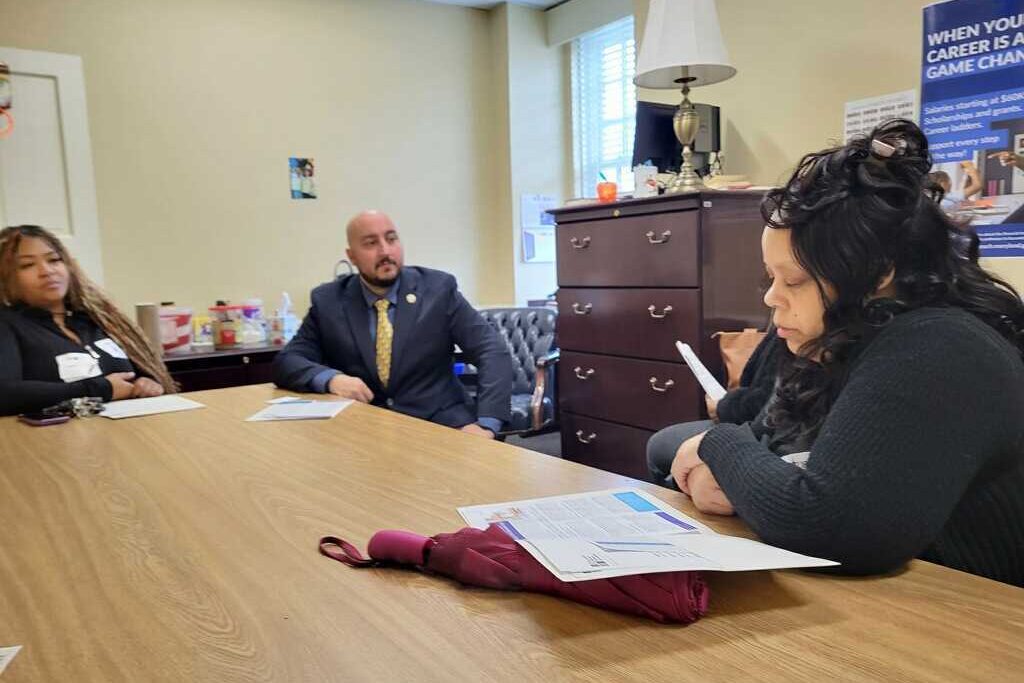
Participants from across the Baltimore region gathered in Annapolis for this empowering day, which began with a formal introduction on the floor of the House of Delegates by Delegate Caylin Young, representing District 45 in Baltimore City and serving on the BRHP Board of Directors. In his remarks, Delegate Young acknowledged the landmark civil rights case Thompson v. HUD, which paved the way for BRHP’s work toward greater housing equity in our region.
Throughout the day, participants engaged in meaningful conversations with their legislators and staff, sharing personal stories of housing discrimination due to credit history—despite their proven ability to pay rent on time with the help of housing subsidies. Many expressed gratitude for the opportunity to have their voices heard, advocating not only for themselves but for others facing similar barriers.
Among the powerful testimonies shared, one participant described how her search for a new home has been repeatedly derailed by landlords rejecting her application based solely on her credit score—even though she has never missed a rent payment and has stable housing assistance. Another participant detailed how medical debt from a family emergency severely impacted her credit, making it nearly impossible for her to secure suitable housing for her family.
These stories underscore the urgent need for HB 896/SB 677. No family should be denied access to safe and stable housing because of arbitrary credit screening practices that fail to reflect their true ability to pay rent. This legislation is a crucial step toward ensuring that low-income families are not unfairly excluded from quality housing opportunities.
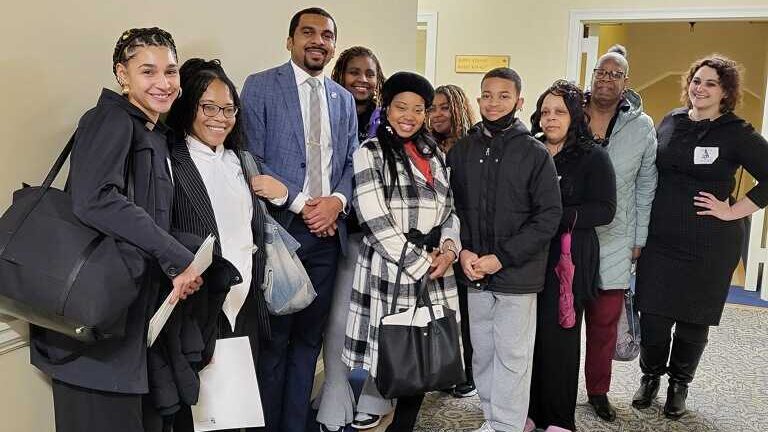
BRHP remains committed to advocating for policies that promote housing access and equity. We thank all participants, legislators, and supporters who made this first Advocacy Day a success, and we look forward to continuing the fight for fair housing in Maryland.
Click here to learn more about HB 896/SB 677 and to see BRHP Executive Director Adria Crutchfield’s testimony before the Maryland House Environment and Transportation Committee.
Written by: Emily Hovermale, External Affairs Director
